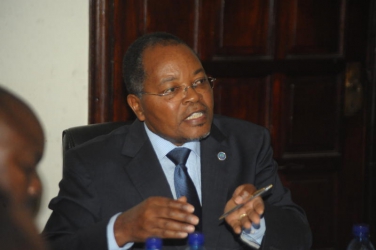×
The Standard e-Paper
Home To Bold Columnists

The second phase of a multi-billion-shilling expansion at the Port of Mombasa is facing a threat from locals who want the Kenya Ports Authority to compensate them before mining sand for the project.
At a meeting of the National Assembly’s Committee on Environment and Natural Resources, KPA managing director Gichiri Ndua (below) was told that residents of Kwale County insist that they be compensated for the first phase before the second one commenced.